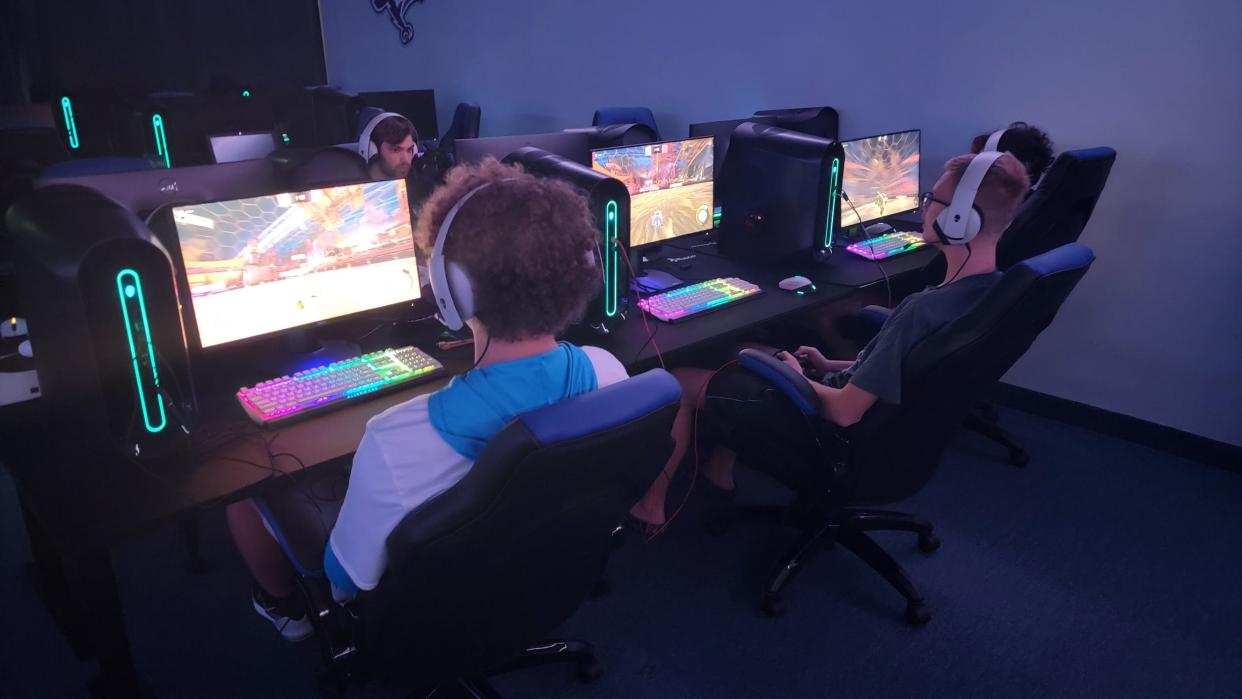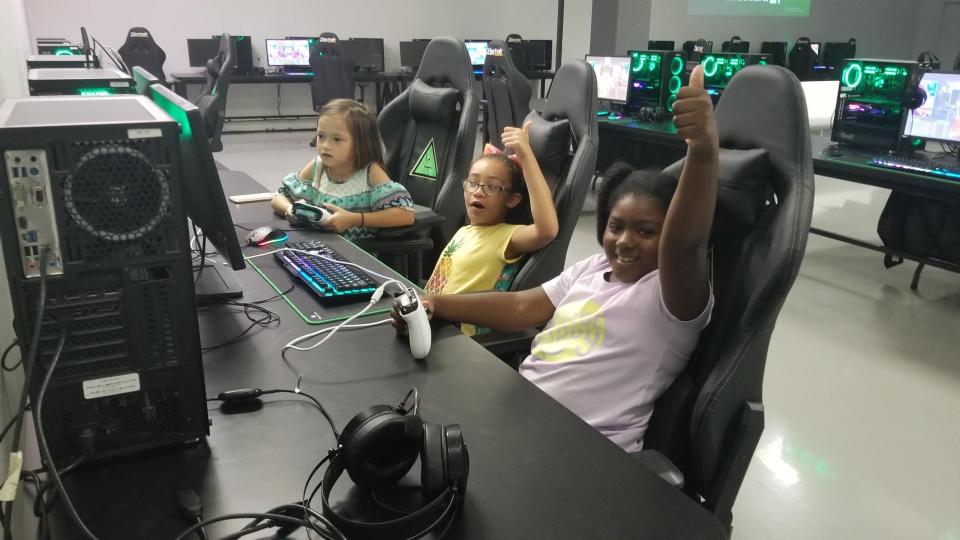Marcia Pledger: Gaming clubs are a great way to expose teens to opportunities in technology

When you’re trying to get someone’s attention, there’s something to be said about meeting people at their level of interest. Without question, talking to teens about gaming is among the best ways to introduce teenagers to the many opportunities available in the tech world.
There’s also a lot to be said about risk-takers like Jacksonville resident John Sarmie. He is making efforts to get kids out of their bedrooms and into local video gaming clubs and competitions where they learn about social development and how to work together. But they are also introduced to vast career opportunities that include writing, publishing, coding, stream producers, and marketing.
It’s the reason he left a 23-year career in sports technology to find business opportunities that allow him to reach Jacksonville students. With a sports entertainment career that involved traveling all over the world to play a role in virtual graphics that are now part of all professional sports, he decided that the fast-growing world of video gaming would be part of his next chapter.
“We want to reach these kids where they are in gaming to provide opportunities for college scholarships and career pathways,” said Sarmie, owner of Awkward Croc Entertainment and the founder of little eLeague.
Marcia Pledger: The mental health crisis among Duval County's youth needs community support
Marcia Pledger: It's important to focus on workplace injuries and death on the job
In 2019, the esports market was expected to pass the $1 billion mark for the first time. By this year, it's projected to be nearly double that. Most of that money — more than half — comes from sponsorships and sales of media rights. The industry continues to grow with viewership and revenue and a big part of the growth started with the pandemic. The cancellation of live sports events helped accelerate the rise of esports, with streaming becoming one of the ways to deliver content.
Too often people — especially members of my generation — have a tendency to push our experiences and values on to the next generation, and that includes a desire to see more young people engaging with each other outside, whether it's just hanging out socializing or getting involved in sports. But the fact is that not every student is interested in playing sports, and many students are interested in playing video games. It’s an opportunity for them to not only meet other students with similar passions but also expose them to a huge variety of careers associated with technology.
Sarmie recently partnered with Keiser University-Jacksonville Campus to host youth esports clubs. Little eLeague is a social and competitive team-based gaming club for youth that offers opportunities to students interested in esports, production, and game development. Keiser offers a new esports computer lab with high-end gaming computers where students are immersed in a college esports environment.
Keiser is among a growing number of universities nationwide that are creating more academic opportunities in this emerging industry. In recent years, college esports programs have exploded in popularity.
“We are always looking for ways to impact our community and create unique player experiences that don’t exist at home. Who wouldn’t want the opportunity to improve their skills by practicing and competing at a college esports lab?,” said Sarmie.
In the last two years, Sarmie has developed relationships with various organizations, including the YMCA. And while his new goal is to create little eLeague gaming “hubs” all over, just like local baseball fields, it wasn't his first effort.

Sarmie was among start-up entrepreneurs whose timing couldn't have been worse. He spent his retirement savings to open ACE Arena, a 22,500 square-foot esports education and events facility in Jacksonville right before the pandemic, which had to be closed before he could get going. He's now seeking partners and investors to open a similar venue. Meanwhile, he recently formed a non-profit called First Coast Esports Alliance. The nonprofit's mission is to foster positive social and educational experiences through esports, gaming, and technology.
"I’m going to keep pushing forward. I have to practice what I teach my kids. Sports teach us about resilience and getting back in the game," he said. "With perseverance, you really never lose. But you always learn lessons, and there's never just one way to reach a goal."
Marcia Pledger is the Opinion and Engagement Editor for the Florida Times-Union. She can be reached at mpledger@jacksonville.com.
This article originally appeared on Florida Times-Union: Gaming clubs, esports expose teens to possible futures in technology

